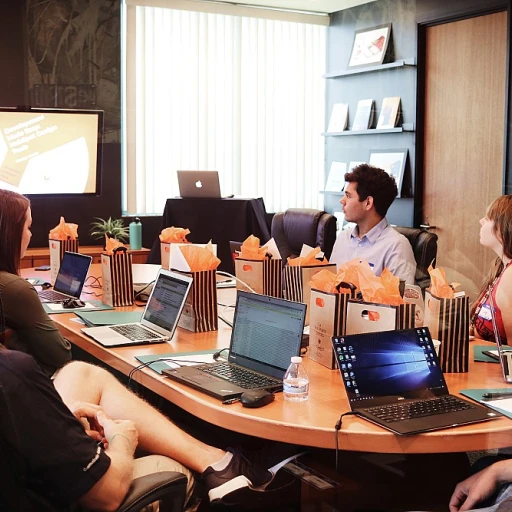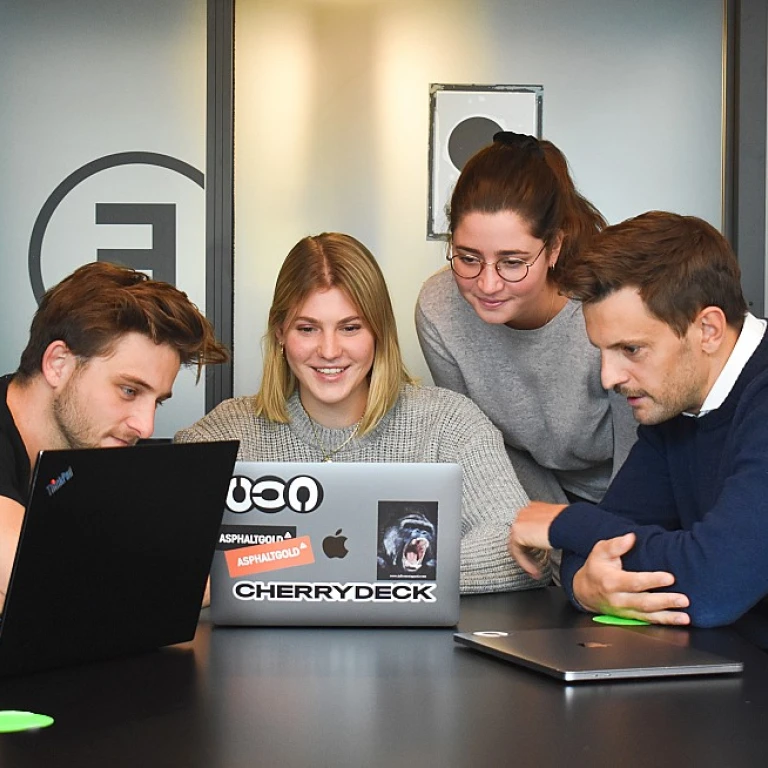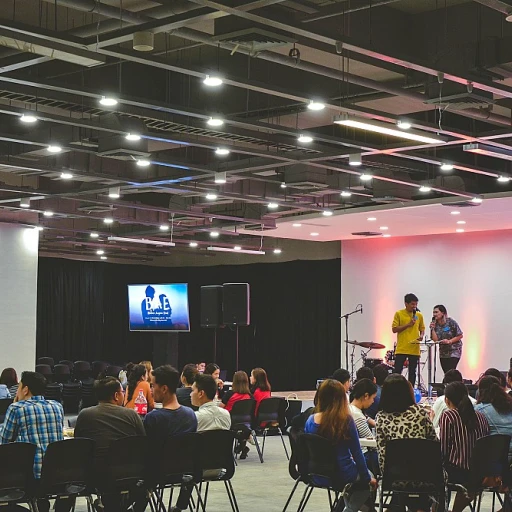
Understanding the Need for Reskilling in Education
The Evolving Landscape of Education
The world of education is undergoing a significant transformation. As society continues to evolve, there is a pressing need for educators to adapt as well. Educating children is no longer confined to traditional methods and established curricula. Instead, it has become a dynamic field that demands flexibility and innovation. This shift arises from various factors, such as technological advancements, changing student needs, and new pedagogical approaches. Early childhood and public talks have highlighted the importance of a more personalized approach to learning. Jiddu Krishnamurti, a prominent philosopher, often emphasized the significance of understanding a child's unique thoughts and feelings to foster a mirror relationship in education. Teachers are now recognizing that educating goes beyond imparting knowledge; it's about nurturing curiosity and inspiring life-long learning habits.Adapting to New Educational Demands
The introduction of technology in classrooms has changed the way education is delivered and received. Schools need to equip their students and teachers with the skills needed to navigate this new digital landscape. Current students are more tech-savvy, and teachers must match that by continuously upgrading their capabilities. For example, understanding coding can become as essential as knowing mathematics.The complexity of these changes implies a shift in focus for professional development and training programs. Reskilling teachers doesn't merely address gaps in knowledge; it ensures that educators are prepared for a radical change in teaching dynamics. By embracing these changes, educators can bridge the gap between current educational demands and future challenges.
Education as a Life-long Journey
Learning does not stop after acquiring a degree; it continues throughout an educator's career. The best teaching practices today may be obsolete tomorrow, so it's crucial to maintain a proactive stance in professional development. This approach requires teachers to engage as both learners and educators, cultivating an environment where teaching, learning, and technology coalesce effectively. Moreover, the role of educators is increasingly seen as facilitators of learning rather than mere deliverers of content. They must foster an educational ecosystem that encourages students to explore, understand and prepare for future challenges. For more insights on how educators can align with evolving demands, consider exploring how aligning with client goals can enhance reskilling outcomes.Identifying Key Skills for Modern Educators
The Evolving Role of Teachers in Modern Education
In today's rapidly changing world, the educational landscape is undergoing a remarkable transformation. As educators, embracing new skills and methodologies is vital in adapting to these changes. Reskilling is not merely an option; it is a necessity to address the dynamic learning needs of current students. For teachers, this means becoming lifelong learners themselves. Teachers, like all professionals, must continuously update their skills. The journey of reskilling involves diving deep into new realms of knowledge, from understanding the transformative potential of digital tools to integrating social-emotional learning approaches that Jiddu Krishnamurti might discuss in his public talks. This continuous learning enhances educators' abilities to foster meaningful relationships with students, enriching the "mirror relationship" that is crucial to a successful educational journey.- Technology Integration: One of the key skills modern educators need to master is technology integration. Schools today are embracing digital learning environments, which require educators to be proficient in various digital tools and platforms.
- Social-Emotional Learning: Recognizing the importance of students' emotional well-being, educators must develop emotional intelligence and foster environments where thoughts and feelings are nurtured.
- Adaptability and Creativity: Educators should cultivate the ability to adapt quickly and think creatively to address diverse learning needs and challenges. This includes being open to exploring new teaching methods and strategies.
Challenges in Implementing Reskilling Programs
Overcoming Obstacles to Enhance Teaching Skills
Implementing reskilling programs for modern educators is fraught with challenges that echo across schools and educational systems. These hurdles often hinder the effective transformation needed for educators in today's rapidly evolving landscape. One of the significant barriers lies in the resistance to change. Many educators, molded by years of traditional teaching methods, face difficulties in embracing alternative approaches that prioritize child-centered learning. Just as Jiddu Krishnamurti emphasized the education significance of understanding thoughts feelings in children, so too must educators recognize the emotional and cognitive needs of their students. Funding can present another obstacle. Instituting widespread reskilling programs often comes with a high price. Schools may struggle to allocate resources, diverting budgets from other critical areas. The support from institutions is essential, as it involves not only financial backing but also infrastructural support to foster educator educating initiatives. Professional development opportunities are scarce in certain regions, leading to a gap between the current students’ needs and the teachers' skills. High school teachers, for instance, might need unique training programs compared to child educators in early childhood settings. The lack of differentiated programs to suit varying educational settings complicates the reskilling efforts. Compounding these issues is the necessity to measure the impacts of such programs on school outcomes. Metrics are often unavailable, making it hard for educators to press enter into these programs without concrete evidence of success. Additionally, training programs must focus not just on knowledge transfer but fostering a mirror relationship where teachers learn to reflect on their own practice and adapt accordingly. In conclusion, tackling these challenges requires a coordinated effort to drive radical change in education. Investing in proper strategies and understanding the dynamics within teaching environments can pave the way for successful reskilling journeys. For more insights on overcoming these obstacles, explore how accelerating change in the reskilling journey can provide a roadmap to effective solutions.Effective Strategies for Educator Reskilling
Strategic Approaches to Enhancing Educator Capabilities
Efficiently reskilling educators to meet contemporary educational demands calls for innovative and effective strategies. In the ever-evolving landscape of education, teachers and educators need to adapt to the changing dynamics rapidly to cater to the diverse needs of students. One key strategy involves the adoption of individualized learning plans for educators. Just as students thrive on personalized learning experiences, educators can benefit from tailored professional development plans that address their unique strengths and areas for improvement. These plans help in aligning their skills with the demands of modern teaching. Integration of technology is another vital component in reskilling programs. With the rise of digital tools in education, schools can utilize platforms that offer extensive training programs to educate teachers on using technology effectively. This not only enhances their teaching methods but also enriches the learning experience for students.Fostering Collaborative Learning Environments
Collaboration among educators is instrumental in facilitating effective reskilling. By encouraging teachers to share insights, challenges, and solutions with their peers, schools can create an environment where professional development is a collective endeavor. Regular workshops and group discussions can serve as platforms for this exchange of knowledge and experiences. Schools must also invest in ongoing monitoring and feedback mechanisms. By regularly assessing the progress and outcomes of reskilling initiatives, educators and administrators can ensure that these programs remain relevant and impactful. This practice not only aids in identifying gaps in training but also in celebrating successes, thus motivating educators to continually seek growth.Encouraging Reflective Practices
Reflective practice is a critical strategy in educator reskilling. Educators should be encouraged to regularly reflect on their teaching practices, considering the thoughts, feelings, and feedback from their students. Such reflection can lead to insights that prompt a radical change in their teaching approach. Incorporating public talks and open forums where educators can share their reflections can also be beneficial. This sharing of experiences not only enhances the collective wisdom of educators but also fosters a mirror relationship between teaching practices and student outcomes. In conclusion, effective reskilling of educators requires a multifaceted approach. By tailoring professional development, incorporating technology, fostering collaboration, and promoting reflective practices, schools can empower educators to meet the dynamic needs of current and future students, ensuring a robust, adaptable education system.The Role of Institutions in Supporting Educator Reskilling
Institutional Support for Educator Reskilling
The transformation of education is not solely the responsibility of individual educators; institutions play a vital role in fostering an environment that supports reskilling efforts. With an ever-evolving educational landscape, the shift in teaching paradigms requires both students and teachers to adapt, making institutional backing indispensable. Public talks have often highlighted the education significance in the development of schools, with a particular focus on tailoring programs that reflect the needs of modern-day schooling. Educating educators requires providing training programs that align with current educational trends and address the challenges educators face today. Institutions need to consider several factors when implementing reskilling initiatives:- Accessibility to Training Programs: Ensuring that professional development opportunities are readily available to all educators, especially those in early childhood education, is critical. Tailored programs should cater to the unique needs of each educator, considering years of education and specific teaching roles.
- Resource Allocation: The price and resources dedicated to such programs must reflect the importance of this radical change in teaching philosophy. Adequate funding and resources are necessary to provide comprehensive training that equips educators with the right skills and knowledge.
- Collaboration and Networking: Schools and educators must engage in collaborations that extend beyond their immediate environments. Share ideas and best practices through large audiences, including international forums and workshops.
- Feedback and Adaptation: Implementing channels where teachers can express thoughts feelings on their experiences with current reskilling efforts will help institutions make adjustments to their programs for greater effectiveness.













